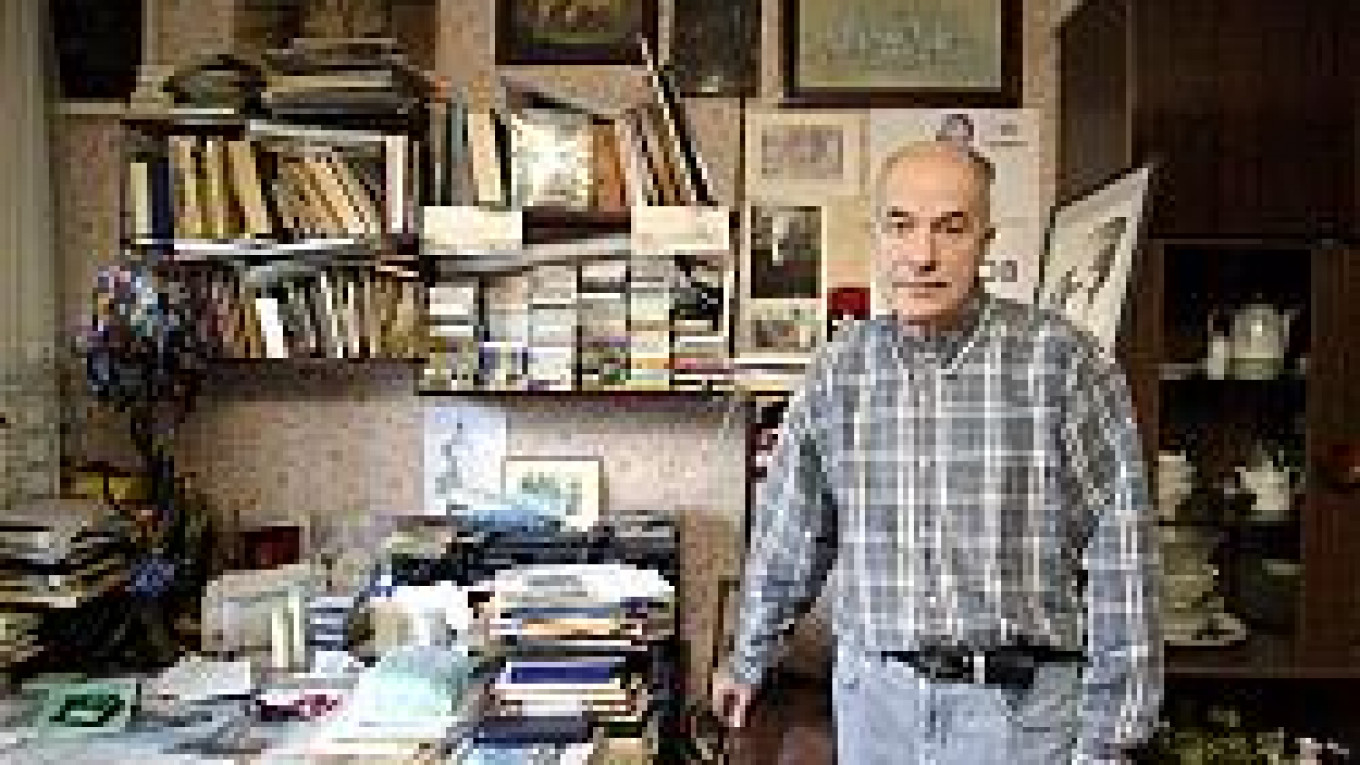The collection belonged to conductor Roman Matsov, a close collaborator of Shostakovich.
"What does every composer need more than anything? A conductor," said Matsov's son Mark, who said his father was key to the creative process that brought Shostakovich's music to life.
For decades, Shostakovich feared being silenced by dictator Josef Stalin and his comrades, who were intent on having Soviet artists produce optimistic works that reflected positively on their state. He saw most of his commissions evaporate after the Communist Party mouthpiece Pravda attacked his opera, "Lady Macbeth of Mtsensk," in 1936, and in 1948, when he was again denounced by party ideologues.
Roman Matsov had aspired to a career as a concert violinist and pianist, but his dream was shattered by a bullet that lodged in his right shoulder during a World War II battle and paralyzed his arm. After the war, he became a conductor and settled in his native Estonia.
Matsov, who had studied music in Berlin before the war, introduced Soviet audiences to previously banned religious works by composers including Bach, Handel, Haydn, Mozart and Verdi. He also formed a close bond with Shostakovich, whom he first met in 1927.
The Soviet authorities mistrusted Shostakovich, whose music Mark Matsov characterized as "tragic, satiric and ironic -- not what the regime needed."
While Shostakovich avoided the fate of other dissident cultural figures who were shot, imprisoned or sent into exile, many in his circle did not, leaving him largely isolated.
Matsov and Russian pianist Maria Yudina were among the few artists who regularly collaborated with the composer, Mark Matsov said.
Roman Matsov's distance from Moscow gave him -- and Shostakovich -- the opportunity to circumvent state censors. The composer asked Matsov to perform his works in the Estonian capital, Tallinn, within two or three days of their debuts in Moscow and Leningrad in case the central authorities slapped a ban on the compositions, Mark Matsov said.
Shostakovich has long been a controversial figure, with debates still raging in cultural circles about the extent to which he bent to the will of the Soviet regime or defied it.
Leon Botstein, music director of the American Symphony Orchestra and president of New York's Bard College, which hosted a symposium on Shostakovich this summer, said the material could yield interesting insights into the composer's expectations for his own works.
"Shostakovich was such a complicated case -- he was in favor, he was out of favor. This was changing all the time," he said.
Shostakovich produced two of his most renowned works, the Seventh (Leningrad) and Eighth Symphonies, during World War II, and debate continues on whether their dismal soundscapes were intended as a portrayal of Soviets' suffering under a foreign oppressor or their own regime.
Mark Matsov said that hearing his father's rendition of Shostakovich's music would shed light on the issue.
The recordings are stacked in the Tallinn apartment where Matsov lived and worked before his death in 2001 at age 84. Mark Matsov is having increasing difficulty affording the 400 euro ($510) monthly rent, and he is concerned the price could skyrocket now that Estonia has lifted rent ceilings, leaving the archive without a home.
"In the coming months, one of humanity's most important cultural legacies will perish," Yevgeny Pasternak, the son of Nobel Prize-winning Russian writer Boris Pasternak, wrote in an open letter to music lovers earlier this month.
Pasternak said the struggle waged by Shostakovich, Matsov and Yudina for musical freedom had inspired his father "and all freethinking people of the epoch of communist terror to uncensored, free creativity."
The condition of the recordings, which have not been made public, is unknown.
Mark Matsov is searching for a new home for the archive in a place where Shostakovich scholars can pore over its contents -- and where they'll be safe.
A Russian museum or library could step in and take part of the archive, he said, "but they could rot, burn up in a fire, or be stolen," Matsov said.
Eesti Raadio, Estonia's state radio broadcaster, has a selection of Shostakovich and Matsov recordings and tapes in its old archives, said Heli Pikk, who oversees the collection. She said she would welcome more and that they would be well cared for.
Ilya Ovchinnikov, a music critic for the newspaper Gazeta, said that the recordings would add much to the understanding of a complicated composer.
"The world of his symphonies is endless and leaves the conductor with ample room for interpretation," he said.
A Message from The Moscow Times:
Dear readers,
We are facing unprecedented challenges. Russia's Prosecutor General's Office has designated The Moscow Times as an "undesirable" organization, criminalizing our work and putting our staff at risk of prosecution. This follows our earlier unjust labeling as a "foreign agent."
These actions are direct attempts to silence independent journalism in Russia. The authorities claim our work "discredits the decisions of the Russian leadership." We see things differently: we strive to provide accurate, unbiased reporting on Russia.
We, the journalists of The Moscow Times, refuse to be silenced. But to continue our work, we need your help.
Your support, no matter how small, makes a world of difference. If you can, please support us monthly starting from just $2. It's quick to set up, and every contribution makes a significant impact.
By supporting The Moscow Times, you're defending open, independent journalism in the face of repression. Thank you for standing with us.
Remind me later.


